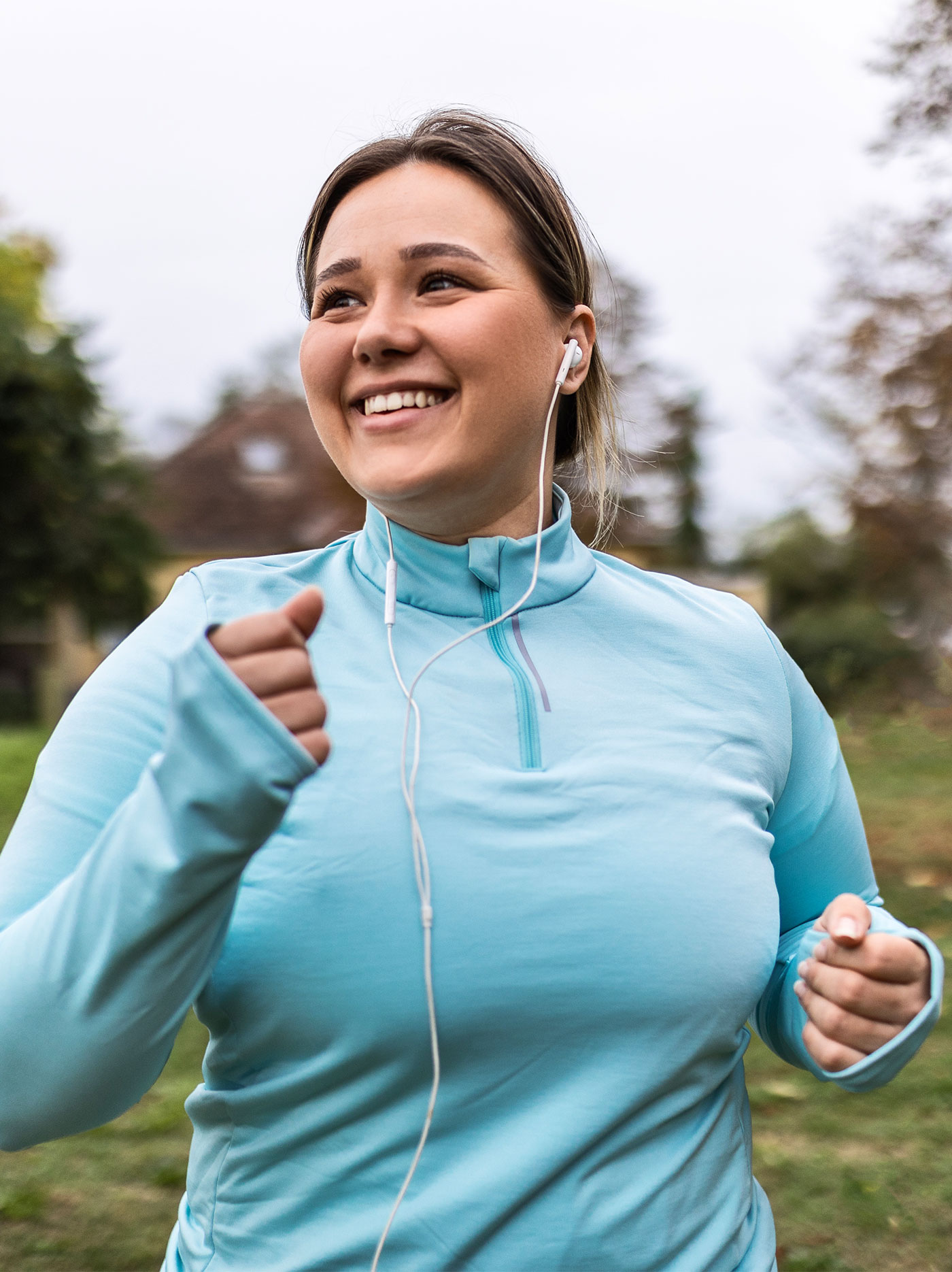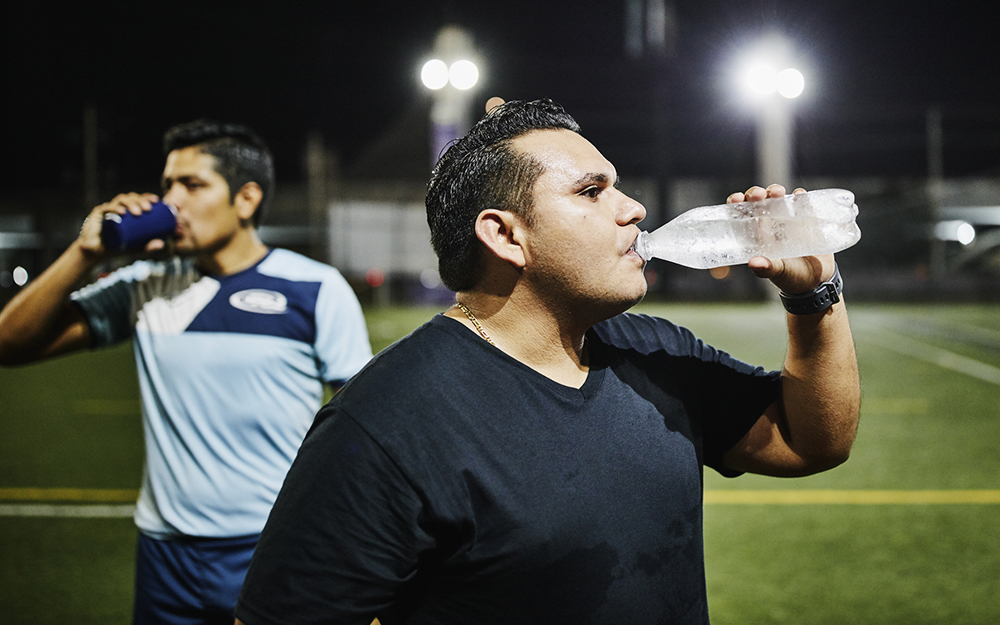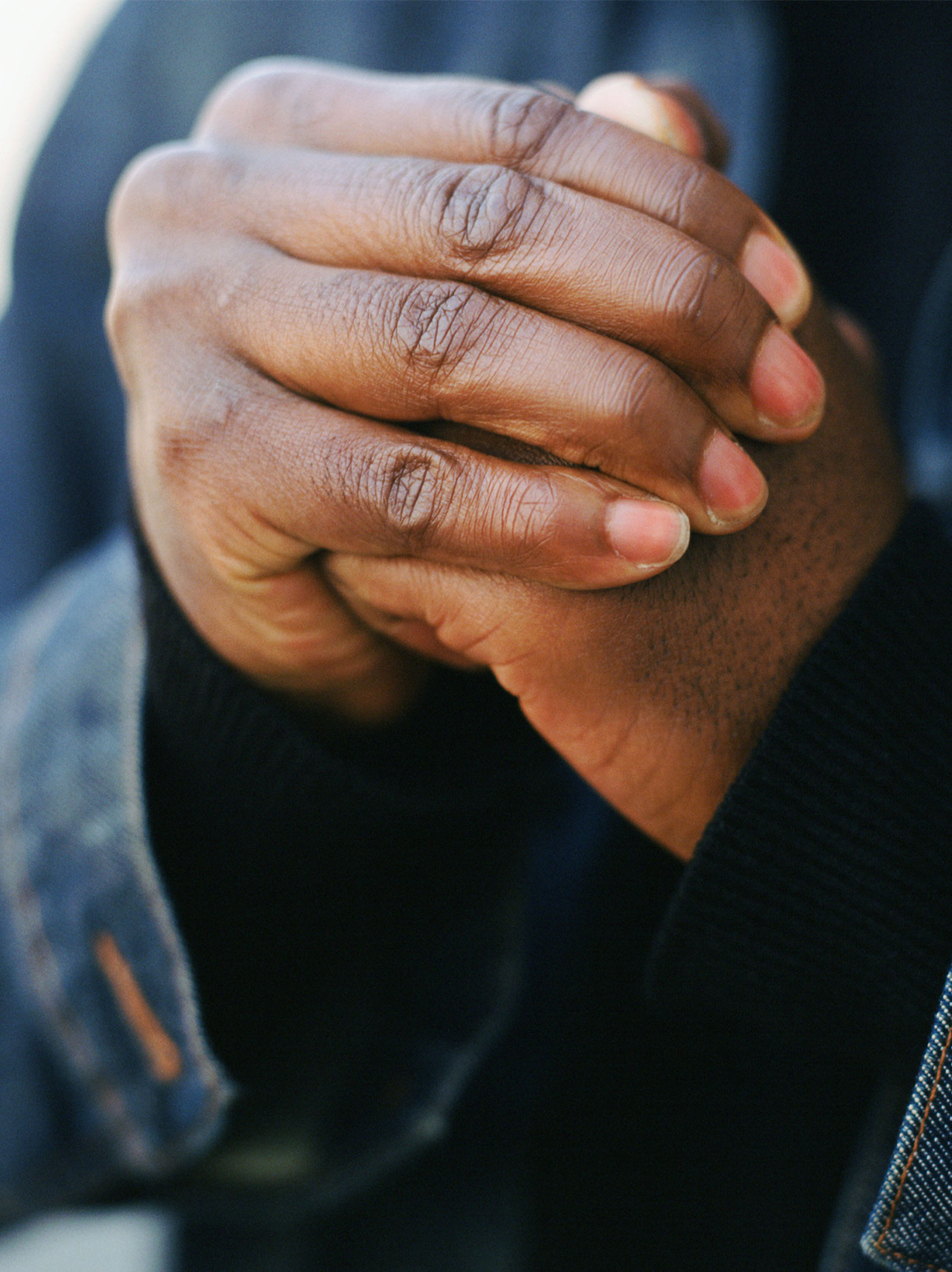Ask a Doctor: Is Running Good or Bad for You?
Date
January 15, 2026
Credits

Date
January 15, 2026
Credits
Medical providers featured in this article

In Brief
Running is one of the cheapest and fastest ways to get in a workout, but is running healthy?
Runners will tell you it’s great cardiovascular exercise that is good for your heart and boosts mental health benefits. Skeptics will point out runners can develop joint problems and muscle injuries from frequently pounding the pavement.
So, what do doctors say? Carlos Uquillas, MD, an orthopedic surgeon who specializes in injury prevention at Cedars-Sinai Orthopaedics, helps weigh the pros and cons of running.
“I tell patients that I'd much rather you wear out your knees than wear out your heart and lungs, because your knees are much easier to replace than your vital organs.”
The Good
Studies show prolonged cardiovascular exercise, which includes running, is hugely beneficial to your health. Uquillas noted running has many benefits for the body, including:
- Increases endorphin levels: Endorphins are your brain’s natural feel-good chemicals, which boost metabolism and provide a positive sense of wellbeing often referred to as a “runner's high.”
- Enhances sleep: Better sleep improves metabolism, organ function, and physical and mental energy.
- Lowers risk of depression: Depression is one of the most common mental health conditions, and it can make other illnesses worse.
- Improves bone density: This helps lower your risk for osteoporosis and broken bones, especially as you age.
- Strengthens muscles: Running works several muscle groups—including engaging your core and hip muscles and building your glutes and hamstrings—which reduces the risk of injury.
- Boosts heart health: A 2014 study found that even moderate amounts of running can reduce a person’s risk of death due to heart disease.
“I think the advantages of running are pretty clear,” Uquillas said. “Overall, running is really beneficial to your health.”
{{providers}}
The Bad
Despite all these benefits, running can be hard on your body. The risks include:
- Putting stress on your back and joints, particularly the knees
- Exacerbating arthritis symptoms
- Increasing the chances of straining or tearing muscles
“The injury rates for running are not necessarily high, but they are real,” Uquillas said. “It is not an activity without risk, and as you age, you have to take more precautions to minimize those risks.”
{{cta-block}}
The Precautions
Whether you’re an occasional jogger, weekend warrior or training for your hundredth marathon, Uquillas recommends taking these precautions when running:
- Hydrate properly before, during and after running.
- Wear proper footwear, and replace your running shoes approximately every 400 miles.
- Alternate with low-impact cardiovascular exercise such as swimming, biking or an elliptical to reduce the frequency of running.
- Run on softer surfaces such as rubber tracks, smooth dirt paths or asphalt, which are all less rigid than concrete. Sand is soft, but its unstable surface can also lead to injuries, so exercising on the beach comes with its own set of advantages and disadvantages.
- Start slow and increase activity by no more than 10% each week.
- It’s normal to experience a little stiffness or soreness during or after a run, but check in with a doctor if you experience any pain or swelling.
- Warm up with a brisk walk or some strength exercises before starting a run, and make sure to stretch after you’re done.
The Bottom Line
Running is filled with physical, mental and emotional health benefits that have been scientifically proven. While running is not injury-proof, Uquillas says it’s far better than not being active at all.
“I tell patients that I’d much rather you wear out your knees than wear out your heart and lungs, because your knees are much easier to replace than your vital organs,” he said.
Uquillas said runners should keep their primary care doctor updated on their exercise routine and overall health. But it’s up to each individual to decide what’s best for them.
“If you really love running and you can’t imagine not doing it, then it’s obvious the benefits of running outweigh the risks,” he said.
“If you hate running and you’re only running because someone is making you do it, then you have options. It really does become a risk-benefit analysis for each individual.”
Frequently Asked Questions
Is running good for you?
Running has many health benefits. It increases endorphin levels, helps you sleep better, lowers risk of depression, improves bone density, strengthens muscles and boosts heart health.
Is running bad for you?
The drawbacks of running are that it can cause joint injuries and muscle injuries and exacerbate existing arthritis. However, running is still generally perceived as a healthy activity.
How can you reduce risk of injury while running?
Drink water, wear proper footwear, alternate running with low-impact cardio, run on a track or similar surface, start slow and increase activity gradually, warm up before starting your run, and stretch after you’re done.
Is it normal to experience pain during or after a run?
Many people experience stiffness or soreness during and after a run. Check in with your doctor if you notice pain or swelling.





